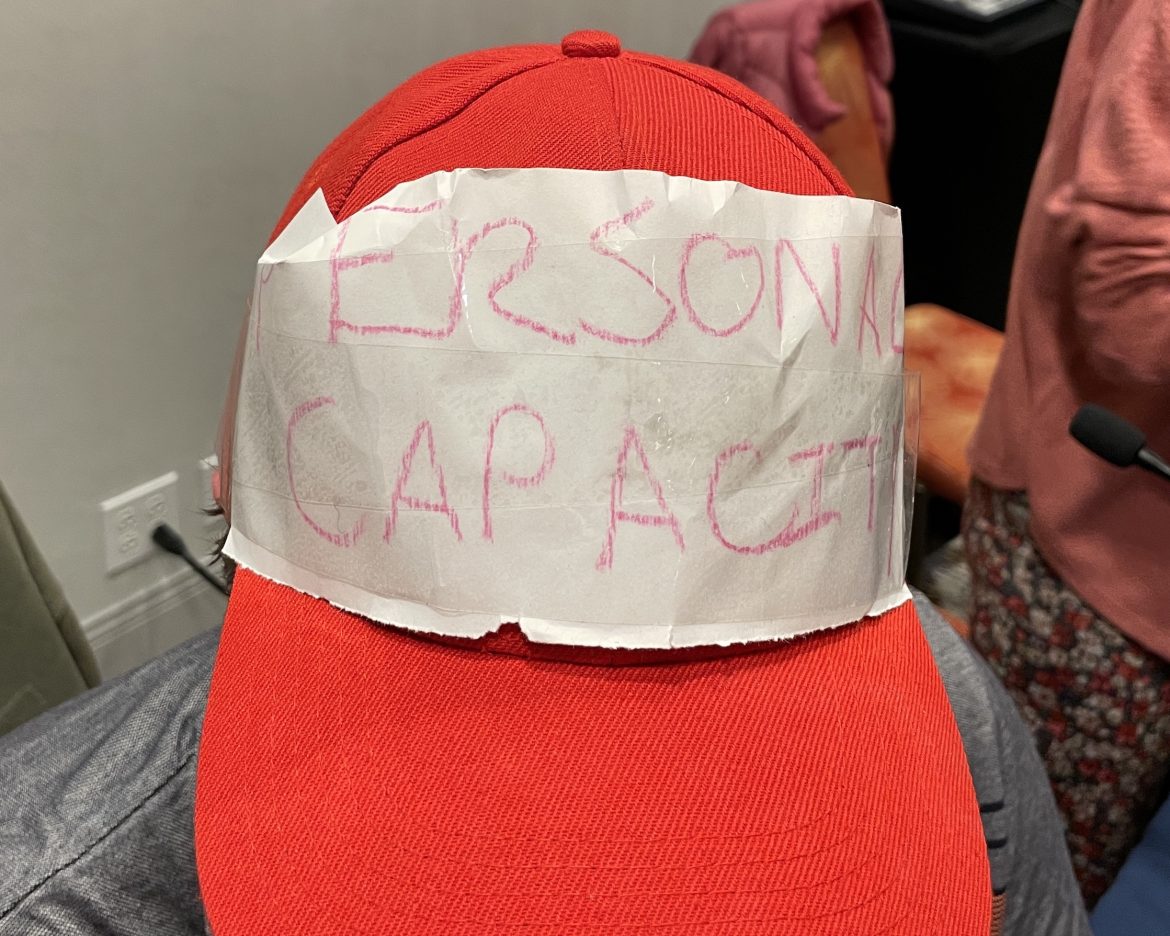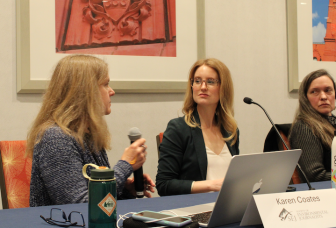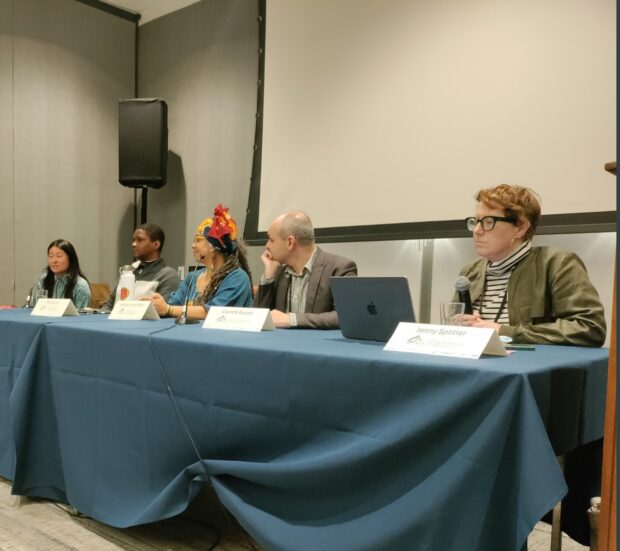By Anna Barnes
Editor’s note: This is one in a series of stories coming out of a recent meeting of the Society of Environmental Journalists in Philadelphia.

A whistleblower speaking at a recent Society of Environmental Journalists conference wore a hat that said “personal capacity” to make sure those in the room would not link his/her statements to any agency and that he/she would remain anonymous.
What do you do when an employee comes forward, exposing their company for wrongdoing?
Environmental journalists discussed how to handle that situation at a recent Society of Environmental Journalist Conference in Philadelphia.
Sharon Lerner, a reporter for ProPublica, used a whistleblower to expose the Environmental Protection Agency for corrupt work practices and safety problems when assessing chemicals.
They had to figure out how to tell the story without endangering the careers of her sources, said Lerner, who led a panel on working with whistleblowers.



